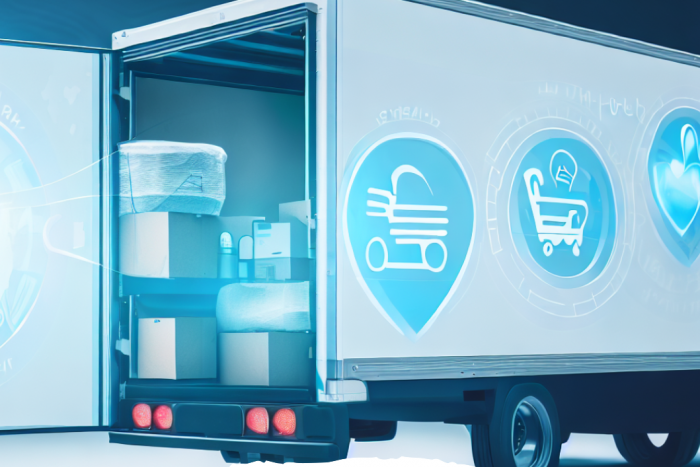Breaking Boundaries: Technological Innovations in the Healthcare Cold Chain

In the ever-evolving healthcare sector, ensuring the safe transportation of temperature-sensitive medical supplies is of utmost importance. Healthcare cold chain monitoring systems play a crucial role in safeguarding products such as vaccinations, drugs, and biological samples, preserving their potency, effectiveness, and safety. These systems ensure that these critical medical supplies are transported and stored within specific temperature ranges to prevent spoilage, loss of efficacy, or potential harm to patients. As the demand for temperature-sensitive pharmaceuticals and biologics rises due to the prevalence of chronic diseases and advancements in healthcare, effective storage, and transportation solutions are becoming imperative. This article explores the challenges and solutions in the healthcare cold chain, emphasizing the significance of cold chain monitoring systems.
Challenges in Healthcare Cold Chain Monitoring
1. Complex Temperature Control and Monitoring
Managing temperature-sensitive products throughout the supply chain is a complex process that requires strict temperature control and continuous monitoring. Any deviations from the required temperature ranges can compromise the efficacy and safety of these medical supplies rendering them harmful to patients.
2. Disruptions in the Supply Chain
Natural disasters and unforeseen events can disrupt the supply chain, leading to delays and potential damage to temperature-sensitive products. These disruptions require contingency plans and robust monitoring systems to ensure continuity and product integrity.
3. Technological Limitations and Infrastructure Gaps
In developing countries, technological limitations and infrastructure gaps can hinder the implementation of effective cold chain monitoring systems. Ensuring universal access to reliable monitoring solutions is a challenge that needs to be addressed to ensure the seamless monitoring of temperature-sensitive medical products.
4. Regulatory Compliance and International Standards
The healthcare cold chain industry is subject to stringent regulatory requirements and international standards to ensure product safety and quality. Adherence to these guidelines adds complexity and cost to cold chain operations.
Overcoming the Challenges with Cold Chain Tracking Solutions
The healthcare cold chain industry must overcome these challenges to guarantee the safe transportation of temperature-sensitive medical products. Implementing cutting-edge cold chain tracking solutions can be the key to addressing these obstacles effectively.
1. Technological Advancements
Continuous advancements in technology, such as advanced sensors and cloud-based monitoring systems, enhance the efficiency and reliability of cold chain monitoring solutions. Real-time data and alerts enable quick responses to any deviations, minimizing risks and ensuring product integrity.
2. IoT and Real-Time Monitoring
The growing adoption of the Internet of Things (IoT) enables seamless connectivity between devices, allowing real-time monitoring of temperature-sensitive medical supplies. This proactive approach helps detect issues promptly and facilitates immediate corrective actions.
3. Focus on Reducing Product Wastage
The healthcare sector’s focus on reducing product wastage emphasizes the need for precise temperature control and monitoring. Cold chain tracking solutions aid in minimizing wastage, leading to cost savings and more efficient healthcare practices.
4. Expansion of Pharmaceutical and Biotechnology Sectors
The continuous growth and expansion of the pharmaceutical and biotechnology sectors drive the demand for effective healthcare cold chain solutions. Ensuring the safe and efficient transportation of temperature-sensitive products becomes even more critical as these industries advance and develop life-saving therapies.
5. Collaboration and Partnerships
Collaboration between healthcare stakeholders, including manufacturers, distributors, and logistics providers, is crucial to streamline cold chain operations. Establishing partnerships that prioritize temperature-sensitive product transportation can lead to better overall outcomes.
Conclusion
In the dynamic landscape of the healthcare sector, maintaining the integrity and safety of temperature-sensitive medical supplies is vital. Healthcare cold chain monitoring plays a vital role in ensuring that vaccinations, drugs, and biological samples reach their destinations in optimal condition. Despite the challenges posed by complex temperature control, supply chain disruptions, and regulatory compliance, innovative solutions such as advanced sensors, cloud-based monitoring, IoT, and real-time tracking are revolutionizing cold chain management. By embracing these technologies and focusing on reducing product wastage, the healthcare industry can guarantee that temperature-sensitive medical supplies reach patients in optimal condition, ultimately saving lives and improving patient outcomes.